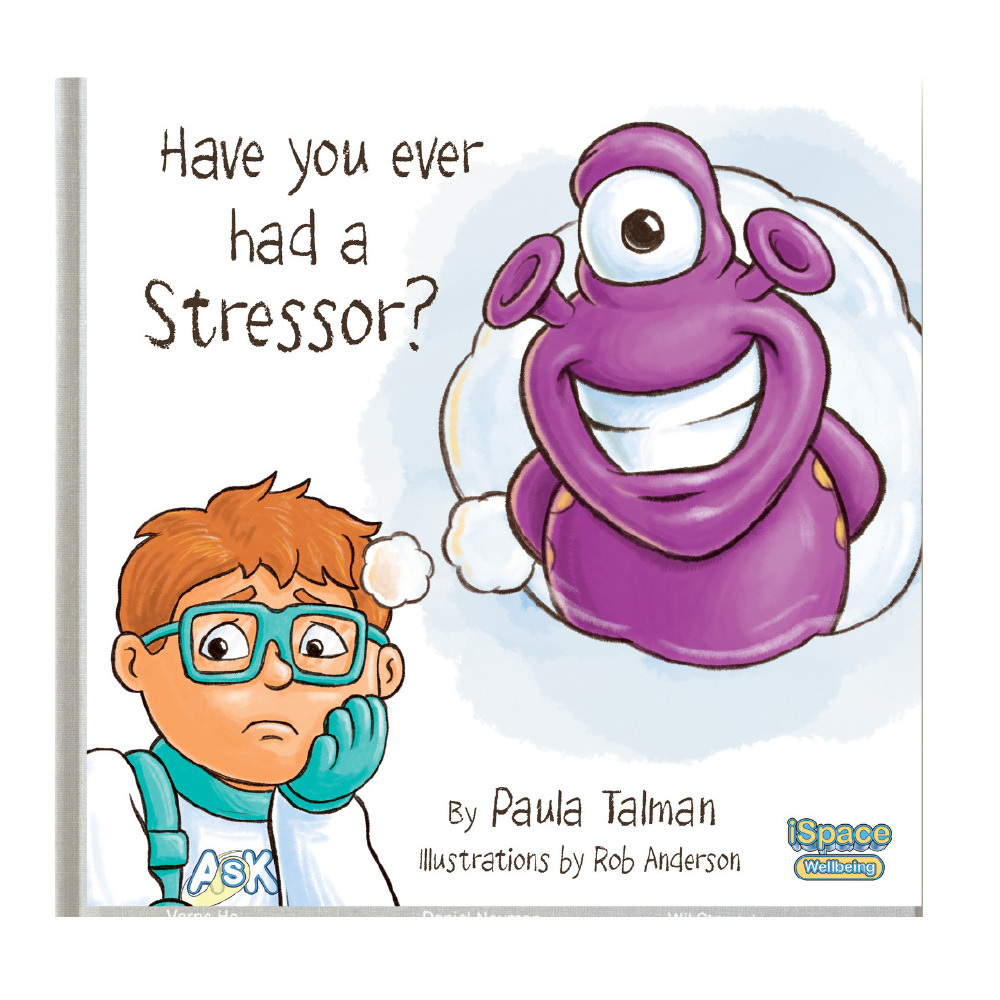Recent figures from NHS Digital revealed that one in six children has experienced a mental health difficulty in 2020 and there are record numbers of calls to Children and Adolescent Mental Health Services (CAMHS) too.

Have You Ever Had A Stressor?
That’s why iSpace Wellbeing, the award-winning mental health curriculum that’s proven to protect the wellbeing of 96% of children who are taught from its lessons, took the decision to offer their curriculum to all schools for free in January.
This week, iSpace Wellbeing welcomed its 175th school, meaning that around 45,000 children are now on the right track to gaining the knowledge, tools and confidence to protect their mental health through this challenging time and into the future.
Here Paula Talman, founder of iSpace Wellbeing, gives her top tips on how to support your child’s mental health and shares why it’s important to remember that while, as parents, we need to validate and empathise with our children’s feelings and learn to set clear boundaries, a child’s role is to explore those boundaries and to express their feelings.
-
Encourage a Positive Mental Attitude, even in challenging times: Nurturing your child to have belief in their abilities will provide them with a strong foundation for mental wellbeing. Our curriculum features characters like ‘Dun-i-can’, whose name supports the idea of a can-do, will-try attitude. Helping your child to recognise their strengths, encouraging positive self-talk and being a positive role model can help them feel that they have the ability to tackle life’s problems as they arise.
-
Behave how you want your child to behave: Most children struggle to self-regulate their behaviour sometimes and that’s perfectly natural, as they’re still learning! The important thing is not to mirror them by getting upset too and not to try to regulate them with threats of punishment either. Let the child feel those emotions of anger or disappointment and validate them through warmth, support and understanding, saying things like “I understand why that has upset you, that would upset me too.” This empathy is calming and holds up a mirror for more positive future behaviour, which they will learn.
-
Set boundaries and don’t change your mind: When we set boundaries as parents it can be frustrating if your child pushes against those boundaries, but it’s their job to push against the boundaries and to learn where the line is. It’s important that once you’ve set a boundary you stick with it - a no must remain a no, despite the tantrums, while a yes must stay as a yes, and not be removed later as a punishment for something. If you’re simply not sure then say you need to think about it, but let them know that once you do come to a decision, it will be final.
-
Teach your children the ‘iSpace’ breathing technique: iSpace stands for ‘I Stop Pause and Calm Everything’ and we find this simple mindful breathing technique is a great way for children to manage their emotions when they’re feeling stressed, upset or overwhelmed. By taking a moment to pause and then breathe out slowly, children can soothe themselves and look at their problems in a new light. And it works for adults too!
-
Use the niggles and stressors jars exercise: If your child gets very upset or overwhelmed by lots of worries then the niggles and stressors jar exercise can really help. Simply ask them to write down all their worries on pieces of paper and then go through them together to categorise them as niggles (small worries) or stressors (big worries). You can then work on a plan together to tackle the big worries. When they are dealt with they can ‘swat them’, ‘stomp them’ or ‘flick them in the bin’, which is very satisfying!
RELATED: Parent-child relationships strengthen as many become 'best friends' during lockdown
Following a year of lockdown and home-schooling, six in 10 children would now describe their parents as their best friends, with 28% rating their parent’s play skills as better than their friends after spending more time with them than ever before. Interestingly, the study also found it’s not just children who think of their parents as their best friends; 71% of mums and dads feel the same way about their offspring. Despite all the pressures they have faced during lockdown and home schooling, six in 10 parents (62%) also admitted they would miss their child being around the house...


